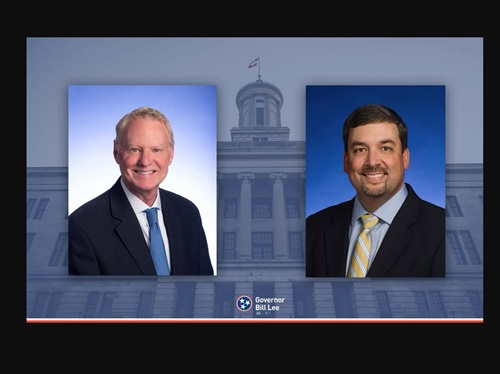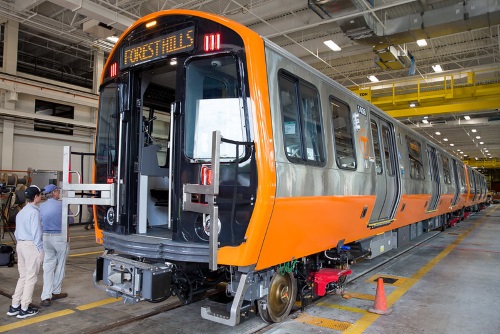The Massachusetts Bay Transportation Authority is beginning to implement 34 safety recommendations that includes 61 corrective actions suggested by a 69-page report commissioned last June after a series of derailments and other safety incidents.
[Above photo by Joshua Qualls/Massachusetts Governor’s Office.]
The report – issued December 9 – is based on 100 interviews, six focus groups, and extensive site visits throughout the MBTA system, and makes six major safety policy recommendations intended “to move the organization to a place where safety is a priority and is culturally integrated into every aspect of their mission.”

“The MBTA has been working aggressively to improve safety across the board, and we have already implemented or begun implementing many of the recommendations of the Safety Review Panel,” noted Steve Poftak, MBTA’s general manager, in a statement. “This has been a constructive and collaborative process that focuses on the highest priority of the T, the [Fiscal Management and] Control Board, and the SRP: Making the T a world leader in transit safety while we provide reliable, dependable, attractive service every day to our 1.3 million riders.”
The report recommendations include:
- Establish safety objectives, safety performance targets, and safety performance indicators that are aligned with industry best practices, closely monitored, and provided with sufficient human capital and funding to be carried out.
- Identify all areas where deferred maintenance is occurring.
- Ensure sufficient resources are devoted to expediting implementation of data collection systems, particularly in the maintenance-of-way, training, and medical departments.
- Consider adopting Federal Railroad Administration standards that now govern commuter rail operations for rapid transit as well, in order to provide standards and guidance for MBTA transit safety.
- Build up the MBTA’s leadership team, including by adding more seasoned transit professionals with operations and safety expertise and experience.
The panel’s report notes that the MBTA has had nine general managers since 2010 and states that this turnover “may be the overarching reason that we see the level of safety deficiency at the agency.”
Along those lines, the report noted that MBTA is working with the Massachusetts Department of Transportation to “speed up talent acquisition” by reducing its “lengthy hiring process of more than 100 days” via the use of MassDOT’s Cornerstone succession planning and management software tool and begin to build a cadre of leadership talent.
 States
States


